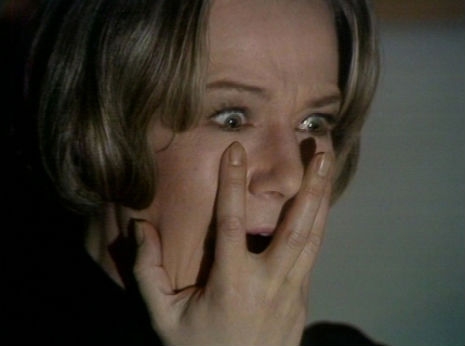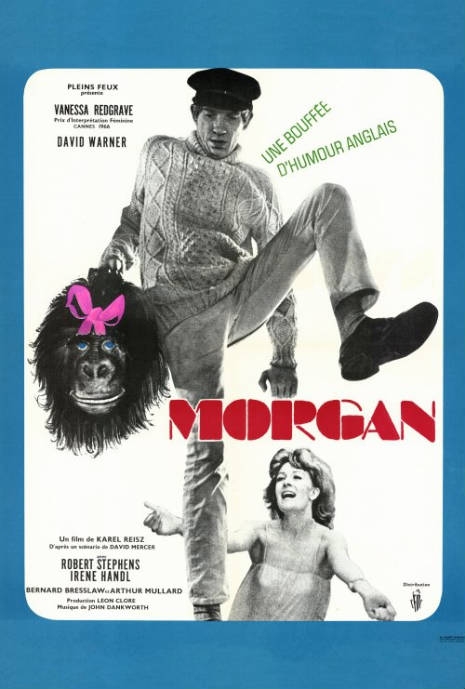
Dead of Night is described (by the BFI, no less) as a “legendary BBC horror anthology series.” I’m not quite sure what qualifies a TV show to be legendary, perhaps it’s something to do with how a series is remembered—shocking, controversial, scary, disturbing—rather than any association with mythical status.
I recall when Dead of Night was first screened, I wasn’t allowed to sit up late to watch its first episode “The Exorcism,” as my superstitious father believed its occult subject matter might lead an impressionable mind into devil-worship. Personally, I never considered that an option for my god-fearing father, no matter how impressionable his mind.
If I had watched it, I would most likely have been a tad disappointed in my childish hope for some Hammer Horror/Dennis Wheatley thrills, as Don Taylor’s drama is not really about the occult, or even an exorcism, but rather it uses the supernatural as a metaphor reflecting the collective responsibility for poverty and social inequality.
Taylor was a political film-maker, who was best known for his early collaborative work with the playwright David Mercer, author of Morgan: A Suitable Case for Treatment, amongst others. Both men were dedicated socialists, who produced topical (and there’s the reason some of their work has not lasted) political plays that questioned the role of political action within everyday life.
Taylor was inexplicably placed on a “blacklist” for seven years by the BBC’s James MacTaggart, which stopped Taylor making plays for the BBC’s Drama Department. He moved to the Arts Department, where he wrote and directed documentaries on Sean O’Casey, Wordsworth, the Liverpool Poets, and Milton.
In 1972, Taylor returned to the BBC’s Drama Department to work on Dead of NIght. His contribution to the series was The Exorcism, which tells the story of two comfortable, middle class couples haunted by the ghosts of the past. It’s not exactly directed with any visual flair, Taylor has focused on the dialog and getting his point across in-between some chilling, supernatural horror, but it’s certainly effective and memorable.
The Exorcism proved so successful it was revived on London’s West End with the actress Mary Ure in the cast.
Ure was famed for her roles in the films The MInd Benders with Dirk Bogarde, and Where Eagles Dare, alongside Richard Burton and Clint Eastwood. Ure was married to the actor Robert Shaw. They had a passionate and tempestuous relationship, but its most damaging effect was that Ure had gradually become an alcoholic. Having taken time-off from film-making to raise a family, Ure returned to the theater in the early 1970s.
In 1975, Mary Ure was starring in The Exorcism, when she mysteriously died. It was claimed by the more sensationalist tabloids that Ms. Ure had committed suicide after being traumatized by the play’s occult subject matter (or worse, possessed by evil spirits). Good copy, but not true. Mary Ure had suffered from depression, and was on prescription dugs. It was the accidental mix of these drugs with alcohol that killed the actress known as the “Scottish Marilyn.”
Two more chilling episodes from ‘Dead of Night’ after the jump…






